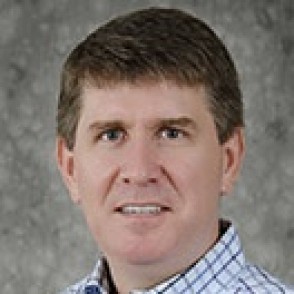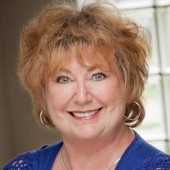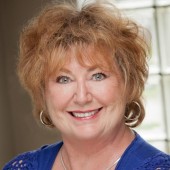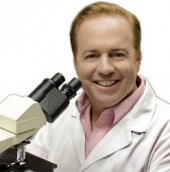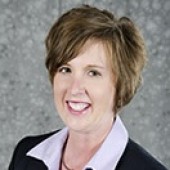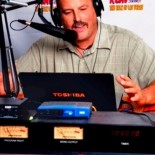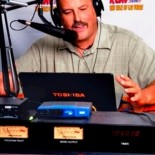Canceled Clients (4762)
Children categories

Train Your Body (438)
The show for fitness buffs or beginners. Expert guest from the American College of Sports Medicine (ACSM) discuss all areas of fitness, nutrition, athletics and sports medicine.
View items...
Staying Well (382)
RadioMD’s “talking” Health A-Z hosted by senior health correspondent, Melanie Cole, MS. Melanie interviews experts in the world of health, wellness, fitness and medicine.
View items...
Healthy Talk w/ Dr. Michael Smith (698)
Integrative physician, Michael A. Smith, MD is committed to providing listeners with the most current health information available.
View items...
Naturally Savvy (899)
Registered Holistic Nutritionist, Andrea Donsky and health expert Lisa Davis discuss their passion for living a natural, healthy lifestyle.
View items...
Eat Right Radio (48)
EatRight Radio, with experts from the Academy of Nutrition and Dietetics, discusses food and nutrition topics, healthy weight, allergies and health conditions, healthy aging, food safety and so much more. Give us 10-minutes and we'll give you the important information and expert advice from registered dietitian nutritionists to help you eat right, feel better, and live a healthier life. Hosted by Melanie Cole, MS.
View items...
Sharecare Radio (235)
Sharecare Radio, hosted by Sharecare’s own Dr. Darria Long Gillespie, SVP of Clinical Strategy at Sharecare, will appear live every Tuesday from 12 to 1 p.m. EST on RadioMD. Dr. Darria will break down the top health news of the week, pull in experts from around the country on a wide array of health topics and answer listeners’ live questions on all things health.
View items...
Wellness for Life (455)
On Wellness For Life Radio you will learn practical, easy-to implement tips to improve your life and start feeling better — the natural way.
View items...
The Wizard of Eyes (163)
Dr. Robert Abel Jr. talks about many of the important and unrecognized parts of our visual system which we so often take for granted. The show covers the usual common ocular disorders with an East/West approach to both prevention and therapy. The eye-brain connection is presented with information about memory retention, Alzheimer's, the myopia epidemic, and many more subjects. Dr. Abel discusses how the eye and vision are connected with remote parts of the body including your gut flora, musculoskeletal system, blood pressure, drugs and lifestyle. practical and simple health tips.
View items...
Code Delicious with Dr. Mike (135)
Code Delicious with Dr. Mike breaks all the rules. Unabashedly confronting the questions, concerns and conundrums that continually confuse both public and experts alike; Dr. Mike takes us on a tasty trip of inquiry.
View items...
CLEAN Food Network (98)
This show is a call to action for all the clean eating revolutionaries that care about their health and how and what they eat. Non-GMO, natural, organic . . . food the way nature intended. The clean food movement is huge and is growing exponentially. This companion program talks to experts in food preparation, healthcare, celebrities, and even those companies that care enough to provide the best, wholesome, organic foods and groceries.
View items...
Talk Healthy Today (213)
Looking to create your best self? Whether it’s good-for-you lifestyle hacks, smarter ways to supplement, or tasty tips to fuel optimal health, Talk Healthy Today brings you the latest research, tools, and common sense tips you need to get and stay healthy... starting today!
View items...
Be a Doer (17)
Be A Doer features master coach and TV personality John Abdo as he shares health and fitness tips aimed at getting you in shape – and keeping you there!
View items...The Power of Probiotics (3)
Probiotics is a major global industry. But like any industry, it had to have a beginning. Natasha Trenev is the daughter of an Eastern European family where the manufacturing of yogurt was a generational business. When Natasha emigrated to the US in the 1960’s, she brought with her 750 years of family experience with probiotics – and introduced the science (and the term itself) to her new country. Today, Natasha’s California-based Natren, Inc. is the recognized pioneer in probiotics and company founder Natasha Trenev has earned recognition as the Mother of Probiotics. Her more than 50 years of work in natural health is at the core of the unparalleled success of her company – and you will benefit from her depth of expertise in each and every episode of THE POWER OF PROBIOTICS.
Probiotics are live microrganisms that are commonly referred to as ‘friendly,’ ‘good’ or ‘healthy’ bacteria that function to help maintain the natural balance of organisms in the intestine. Throughout Natasha’s extensive work in the field of probiotics, she has always been amazed by how nature provides the very ‘good’ bacteria that can help overpower ‘bad’ bacteria to keep our digestive tracts functioning at peak performance. Properly cultivating friendly bacteria and ensuring their potency is at the core of the Natren Process. Natren is cited – by retailers, by the medical community and by consumers – as the best probiotic supplement available. Only Natren carefully chooses its probiotic cultures, formulates and manufactures its industry standard probiotics in its own plant and utilizes a specially-formulated oil matrix to protect probiotics bacteria to survive until they reach their destination in the upper small intestine. This is why only Natren is the most trusted probiotic supplement on the market. Truly, where other probiotic supplements promise – Natren Delivers.
To learn more about how probiotics can benefit your health, we are proud to introduce you to THE POWER OF PROBIOTICS with The Mother of Probiotics, Natasha Trenev.

Your Brain Health (24)
Noted Los Angeles-based neuroscientist and media personality Dr. Kristen Willeumier launches Your Brain Health with Dr. Kristen Willeumier, a podcast series that explores the latest news and information in the burgeoning science of brain health.
View items...Additional Info
- Segment Number 1
- Audio File naturally_savvy/1639ns3a.mp3
- Featured Speaker Cygnia Rapp, Founder of MELT Organic
- Guest Website MELT Organic
- Guest Twitter Account @meltorganic
-
Guest Bio
 They say necessity is the mother of invention. For Melt Organic's founder, Cygnia Rapp, it was being placed on a restrictive diet (no wheat, red meat, hard cheese, butter, peanut butter, and more) that severely limited her intake of fats and oils and quickly took the joy out of eating.
They say necessity is the mother of invention. For Melt Organic's founder, Cygnia Rapp, it was being placed on a restrictive diet (no wheat, red meat, hard cheese, butter, peanut butter, and more) that severely limited her intake of fats and oils and quickly took the joy out of eating.
As a person who loves food and cooking, Cygnia decided to fight back. Working out of her kitchen, she set out to create organic alternatives that would not only meet her health requirements but also satisfy her taste buds. She tirelessly researched fats and oils, uncovering a wealth of little-known information about healthier fats and oils and their influence on health and well-being. What Cygnia “discovered” became the basis for founding Prosperity Organic Foods: Not all saturated fats were bad for her! Her body needs a combination of healthful saturated, polyunsaturated, and monounsaturated fats to maintain vitality.
After months of experimentation, Cygnia developed the recipe for MELT Organic based on two critical organic oils, virgin coconut oil and flaxseed oil, that supported her digestive wellness and overall health. For the first time, these two important oils are in a food product that is easy to love and a pleasure to eat.
Cygnia’s discovery literally changed her life. Convinced of the health benefits and the importance of offering the MELT Organic choice to others, Cygnia invested her life savings and founded Prosperity Organic Foods.
Now in her 40s, Cygnia is far healthier, fitter, and happier than she was at 30, enjoying an active lifestyle of Nordic skiing, mountain biking, and hiking in the mountains with her friends, family, and her Alaskan Malamute. She continues to pursue her passions for nutrition and creating great tasting, healthy organic foods. She especially loves hearing stories from customers who have discovered MELT Organic and love it as much as she does. - Length (mins) 19:11
- Waiver Received Yes
- Host Andrea Donsky, RHN and Lisa Davis, MPH
Additional Info
- Segment Number 2
- Audio File schneck/1638sk1b.mp3
- Doctors Malone, Ryan
- Featured Speaker Ryan Malone, MD
-
Guest Bio
Ryan Malone, MD graduated from medical school at the University of Louisville School of medicine. He then completed a urology residency and surgery internship at the Ohio State University Medical Center. A native of Murray, Kentucky, Dr. Malone knew he wanted to be a doctor at the age of eight. He loves spending time with his family, being outdoors, and playing sports in his free time.
Learn more about Ryan Malone, MD -
Transcription
Bill Klaproth (Host): A quarter to a third of men and women in the U.S. suffer from urinary incontinence. Add in urinary tract infections as well as other diseases of the urinary tract system and it's easy to understand why urologists are in demand. Here to talk with us about their new urology center, First Urology of Schneck Medical Center, is Dr. Ryan Malone. Dr. Malone, thank you for your time. So, conditions of the urinary tract are numerous. What condition do you see most?
Dr. Ryan Malone (Guest): We see a number of patients with urinary incontinence and urinary frequency. We also diagnose and treat patients who come in with blood in the urine.
Bill: So, are those just normal conditions of aging?
Dr. Malone: They can be related to aging. There can also be medical problems that can create that situation regardless of age and an appropriate evaluation can help distinguish between the two.
Bill: So, what are the symptoms that we should be watching out for?
Dr. Malone: Oftentimes, the symptoms are found at the time of an evaluation with a primary care physician through a careful history-taking with the patient. Also, if you are bothered by the number of times you wake up at night to urinate, that is a symptom. Certainly, if you have any pain with urination or visibly see blood in the urine, that would be something that would prompt an evaluation.
Bill: So, that's one of those “immediately call your physician and make an appointment”. But, for the aging where you have to get up several times in the night, I would imagine some men and women choose to live with it. When is it really time to see the doctor when they notice that happening?
Dr. Malone: Oftentimes urinary urgency and frequency is a quality of life symptom and not medically threatening. Therefore, I encourage patients to come in when they feel it is affecting their quality of life such as their sleep pattern and, oftentimes, patients will elect not to leave the house, or certainly plan their day around where the bathrooms are located. So, if it's affecting how you run your life throughout the day, then there are options available.
Bill: Yes, that is something when it starts to affect your daily life, when you're thinking about those types of things. So, as you age, these things start to happen. Do you generally, then, treat them with medications? Is that your first line of treatment?
Dr. Malone: First line of treatment is to look at what patients are doing that might be in their diet and/or lifestyle that might have an impact and sometimes, those modifications can have a great improvement in urinary symptoms. After a physical evaluation and ruling out physical causes that can create that scenario, then medications would be a second line of treatment. Once we have gone through the appropriate medications and determined whether or not those are going to be adequate, there are some third line treatments that can be available in certain situations.
Bill: So, you just brought up lifestyle and diet. Are there preventative tips or ways, then, to prevent these urinary tract problems from happening?
Dr. Malone: Caffeine and cigarettes dramatically irritate the bladder. Some patients have more of that in their diet than they're aware of and if we can limit those, oftentimes their symptoms are much more manageable. Patients also will take certain medications that make them thirsty and they drink a large amount of fluid before going to bed and, as a result, they will get up multiple times at night to get rid of the fluid that they've taken in in the evenings.
Bill: So, those are good tips for someone to take heed if they are starting to have these problems. So, number one, lifestyle and diet; number two, then, the second way that you treat this is with medications. Can you talk about that third line a little bit more then, for us?
Dr. Malone: Alright. So, one of the things that we offer for overactive bladder and difficulty with urination once medications and lifestyle modifications have failed to address the problem, would be Botox injections into the bladder, is an option that's done through a simple outpatient procedure that does not require anesthesia. There is also the possibility of placing a neuromodulation device and a simple way to consider that procedure would be similar to a pacemaker for the bladder, where there's a little electrical stimulation to the bladder that's permanently implanted under the skin and it helps modulate the signal to the bladder so that it functions more effectively.
Bill: So, how often do you have to go to these third line defenses? Are number one, lifestyle and diet changes; two, medication. Do those usually take care of it? Is it rare for you to have to talk about the Botox injection?
Dr. Malone: The third line therapies are going to be somewhere under 10% of patients, which doesn't sound like a large number; however, we see such a high volume of patients with this condition, it ends up not being an insignificant total number of patients that move on to third line therapy.
Bill: Okay. So, you diagnose a full range of urinary needs. What are some of the most complicated conditions you treat, then?
Dr. Malone: So, we treat cancers of the urinary tract and kidney stones as well. Anywhere from kidney cancer, bladder cancer, prostate cancer, testicular cancer. We also treat kidney stones anywhere along the urinary tract in multiple ways, ranging from scope and laser treatment to shockwave lithotripsy treatment, to open stone surgery.
Bill: So, that brings me to your new state-of-the-art technology. Can you tell us more about the new state-of-the-art technology and specialized training at the First Urology of Schneck?
Dr. Malone: So, First Urology offers a wide range of treatments for all conditions within urology. Specifically, we are robotically trained and Schneck Medical Center does have a robot available. We have a very good radiation center available and we work in combination with radiation and medical oncologists to deliver multi-modal therapy for different urologic cancers. We do offer lithotripsy at Schneck Medical Center with a table and device that is brought in on an as-needed basis, so that we can treat patients in a minimally-invasive way, where in the past we would make a large incision and the recovery was approximately one month, the recovery now can be as little as 24 hours.
Bill: So, for someone that has a more serious issue, say, cancers of the kidney or bladder, if someone were to catch that early, do you have a good efficacy rate for treating it and possibly getting that person into remission, then?
Dr. Malone: So, not only remission, but if it can be removed at an early stage, it is surgically curable and would not require additional therapy. So, it really is a preventive measure to have those things evaluated early when symptoms first show up, the number one of which would be blood in the urine.
Bill: So, that is really the first thing to look out for is blood in the urine. That is the first warning sign?
Dr. Malone: If the patient sees that, that should prompt an immediate evaluation.
Bill: Is there one that's not so recognizable as blood in the urine that we should be watching out for? What would be number two for that?
Dr. Malone: Oftentimes, those tests are performed through the primary care physician, such as PSA screening; blood in the urine can show up as a microscopic value that's only found through lab testing and is not seen visually. Flank pain or pain in the upper or lower back would prompt imaging which can take a look at the kidneys to rule out tumor and/or kidney stone.
Bill: Okay. Those are good things definitely to look out for. So, with these new advancements that are happening, Dr. Malone, you've got to feel confident that you have the tools to succeed when someone has a urinary problem.
Dr. Malone: Absolutely.
Bill: Well, that's very good to hear and the First Urology at Schneck sounds like a terrific new center. So, if you could, just tell us a little bit more: why should someone choose First Urology of Schneck for their urology care?
Dr. Malone: First Urology of Schneck Medical Center offers a wide range urologic initial evaluation and advance treatment. The hospital is very well equipped to handle all of these conditions and we have multiple urologists that are available and service First Urology of Schneck Medical Center with sub-specialization within the group for a variety of urologic conditions.
Bill: Dr. Malone, thank you again for your time. For more information visit www.schneckmed.org. That's www.schneckmed.org. This is Schneck Radio, I'm Bill Klaproth, thanks for listening.
- Hosts Bill Klaproth
Additional Info
- Segment Number 1
- Audio File talk_healthy/1639tt2a.mp3
- Featured Speaker Cheryl Myers, RN, BA
- Guest Website EuroPharma, Inc.
-
Guest Bio
 Cheryl Myers is an author, practitioner, and an expert on integrative health and natural medicine. She is a nationally-recognized speaker who has been interviewed by the New York Times, Wall Street Journal and Prevention Magazine. Her many articles have been published in such diverse journals as Aesthetic Surgery Journal and Nutrition in Complementary Care, and her research on botanicals has been presented at the American College of Obstetrics and Gynecology and the North American Menopause Society. She is a well-known advocate for bridging the worlds of mainstream and natural medicine. A graduate of Purdue University, Ms. Myers has been clinically certified in oncology and gerontology, has an additional degree in psychology focusing on physiological brain function, and is the head of Scientific Affairs and Education for EuroPharma, Inc.
Cheryl Myers is an author, practitioner, and an expert on integrative health and natural medicine. She is a nationally-recognized speaker who has been interviewed by the New York Times, Wall Street Journal and Prevention Magazine. Her many articles have been published in such diverse journals as Aesthetic Surgery Journal and Nutrition in Complementary Care, and her research on botanicals has been presented at the American College of Obstetrics and Gynecology and the North American Menopause Society. She is a well-known advocate for bridging the worlds of mainstream and natural medicine. A graduate of Purdue University, Ms. Myers has been clinically certified in oncology and gerontology, has an additional degree in psychology focusing on physiological brain function, and is the head of Scientific Affairs and Education for EuroPharma, Inc.
- Length (mins) 26:56
- Waiver Received No
Additional Info
- Segment Number 1
- Audio File talk_healthy/1639tt2b.mp3
- Featured Speaker Cheryl Myers, RN, BA
- Guest Website EuroPharma, Inc.
-
Guest Bio
 Cheryl Myers is an author, practitioner, and an expert on integrative health and natural medicine. She is a nationally-recognized speaker who has been interviewed by the New York Times, Wall Street Journal and Prevention Magazine. Her many articles have been published in such diverse journals as Aesthetic Surgery Journal and Nutrition in Complementary Care, and her research on botanicals has been presented at the American College of Obstetrics and Gynecology and the North American Menopause Society. She is a well-known advocate for bridging the worlds of mainstream and natural medicine. A graduate of Purdue University, Ms. Myers has been clinically certified in oncology and gerontology, has an additional degree in psychology focusing on physiological brain function, and is the head of Scientific Affairs and Education for EuroPharma, Inc.
Cheryl Myers is an author, practitioner, and an expert on integrative health and natural medicine. She is a nationally-recognized speaker who has been interviewed by the New York Times, Wall Street Journal and Prevention Magazine. Her many articles have been published in such diverse journals as Aesthetic Surgery Journal and Nutrition in Complementary Care, and her research on botanicals has been presented at the American College of Obstetrics and Gynecology and the North American Menopause Society. She is a well-known advocate for bridging the worlds of mainstream and natural medicine. A graduate of Purdue University, Ms. Myers has been clinically certified in oncology and gerontology, has an additional degree in psychology focusing on physiological brain function, and is the head of Scientific Affairs and Education for EuroPharma, Inc.
- Length (mins) 26:56
- Waiver Received No
Additional Info
- Segment Number 2
- Audio File naturally_savvy/1637ns3b.mp3
- Featured Speaker David Pollock
- Guest Website Just Ask David
- Guest Facebook Account https://www.facebook.com/JustAskDavid/
- Guest Twitter Account @JustAskDavid
-
Guest Bio
 Named one of the “20 to Know” by the Global Cosmetics Industry, David Pollock has over two decades of marketing and product development experience working with some of the most recognized names in the industry.
Named one of the “20 to Know” by the Global Cosmetics Industry, David Pollock has over two decades of marketing and product development experience working with some of the most recognized names in the industry.
David is a published author, co-hosted a national radio show, been interviewed on national television and contributed to publications, such as Dr. Oz, Livestrong, Woman’s Day, Rachel Ray, Yahoo, SheKnows and many others, delivering his message to over 16 million people on a regular basis. - Length (mins) 22:15
- Waiver Received Yes
- Host Andrea Donsky, RHN and Lisa Davis, MPH
Additional Info
- Segment Number 1
- Audio File schneck/1638sk1a.mp3
- Doctors Goodman-Martin, Dawn
- Featured Speaker Dawn Goodman-Martin, MA
-
Guest Bio
Dawn Goodman-Martin is a Licensed Mental Health Counselor, Licensed Clinical Addictions Counselor and a National Certified Counselor. She received her undergraduate degree in Industrial Engineering from Purdue University and her Master’s degree in Community Counseling from Indiana Wesleyan University. Dawn's area of specialty is addictions treatment and education of the addictive personality in adult clients. She also likes to work with quality of life issues, women’s issues, and substance use during pregnancy. She approaches treatment from a Motivational Enhancement Therapy approach which involves behavioral modification and a cognitive development of the individual to strengthen and consolidate their own sense of motivation and commitment to change and promote a sense of self-efficacy.
Learn more about Dawn Goodman-Martin -
Transcription
Bill Klaproth (Host): Teenage drug abuse has become a major public health issue and a confounding, heart-wrenching problem for many parents. Here to explain more is Dawn Goodman-Martin, clinical addiction counselor at Schneck Medical Center. Dawn, thank you so much for being on with us today. So, let me ask you first: why do teens turn to drags?
Dawn Goodman-Martin (Guest): I think, there are several different reasons. I think probably the biggest one is peer pressure. The access is a lot easier and is more prevalent amongst our adolescents nowadays and there are a lot of pretty scary things out there that teens are dealing with them. It's hard being a teenager and so, a lot of times, we will look to something quick and easy to fix our problems and having the drugs out there in the street a little bit more accessible, unfortunately, puts this in the adolescents’ hands.
Bill: What are the most common drugs that teens use?
Dawn: They are going to use something that’s in the class of an opioid. That is typically what we will see. There are some amphetamines, so things like Ritalin and Adderall out there. At far as the opioids that you are going to see, you are going to see some hydros, some oxycodones. We see Xanax out there and where kids become accessible to them, that I think a lot of parents need to realize is, they get them from a medicine cabinet at their home, or from a neighbor, or a relative, or a friend, that the adults have been prescribed these medications for appropriate reasons, but they are left there. You know, a lot of times, people will keep medicine long after they need them, in case there's another episode later on, and these kids know this and they will go through medicine cabinets. That’s where the easiest access for children is, is actually in their parents’ own medicine cabinet.
Bill: So, Job One would be to go through the medicine cabinet and clear out all leftover drugs then.
Dawn: Well, absolutely. We really don't advocate the flushing down the toilet. Our local and all local police departments will have a take back place, where you can walk in and tell them that you have these prescription drug and you would like to have them dispose of them. That's always a place to get rid of drugs--that prescription that you don't need any more. Hospitals, ours does that as well, but many other hospitals will have a place that you can give your old prescription drugs, that would include particularly narcotics, too. Your family's physician is another place that you can do that. We also encourage parents not only to go through the medicine cabinet and any kind of controlled substance. So, when I say "controlled substance”, if you're showing your ID at a pharmacy for a prescription, that's going to be a controlled substance. And so, anything like that that might be in your medicine cabinet, that you are not using, or need, I definitely encourage parents to dispose of those properly. If they are things that a parent is prescribed to appropriately and needs those, then we also always encourage the parents to lock their medications so that it is in a secure place and it is just keeps everyone safe in the house. A lot of times, it’s not just their kids. Kids have friends over and they socialize and so you never know who may be going through your medicine cabinet, unfortunately.
Bill: And, Dawn, what are the signs of teen drug abuse?
Dawn: You know, I think number one, right there, is your parents, please be engaged in your children's lives. We are such busy people, but the more we're engaged in our lives, parents know their kids better than anyone. So, you are going to be likely to notice if there is some unusual moodiness, maybe missing school or their homework, failure to uphold responsibilities. Maybe you get some complaints from school, increased lying, loss of interest in activities that might have been a lot of fun for them. Also, too, locked doors--isolation. Teenagers do like to be isolated in your home, but, you know, I am talking about things that are little bit out of the ordinary for your child. Maybe changes in their peer group, changes in their appearance or clothes, long disappearances, maybe running away or sneaking out of the house, missing items. So, those are some of the behavioral things that we see a lot with adolescents that parents can certainly keep an eye on. But, again, parents know their children better than anyone and how you do that is being actively involved with them.
Bill: And, what should a parent do, then, if they suspect their teen is using drugs?
Dawn: The first thing is to confront them. It is to really talk to them about noticeable changes in behavior. Also, working in partnership with the school. You know, they have some teachers, maybe, that a parent can talk to with that. And, number one get help, absolutely the first thing is to get help. If you are suspecting that your child is, unfortunately, under the influence of an illegal drug, call 9-1-1 or go to the emergency center just to make sure that there isn't anything medically wrong with them and call. Make some calls. Every area has some type of a crisis line, whether it be your local community health center, maybe a hospital, or even a family doctor is a really good place for parents to make that first contact with them at the doctor saying "You know, I think my child maybe involved in some drugs. What can I do? " Family doctors are very, very important in our health care today and they usually have great resources, that would be appropriate for that particular child.
Bill: Right. I wonder if many parents may think, "You know when I was their age, I dabbled and I turned out fine. They're just experimenting. They’re just dabbling. I don't have to worry about them.” What's the distinction? Many teens experiment with drugs. What constitutes addiction?
Dawn: You know, that's a really, really good question and it's not always so cut and dry. You know, addiction can be genetically predisposed. That someone in the family may have had that and it has kind of transferred down the line through the genetic coding, but it also can be around environment and so, those warning signs that we looked at, that could be a cry for help. One of those things that, as far as an addiction, I think, the biggest number one sign is a loss of control, and that drinking or using a substance more than what that person wants to or for longer than what they intended, can actually start to be the very first signs of developing an addiction. You know, risk taking. We see that with adolescents. Knowing that their friend may have used this, so it's okay for them. That's not the case nowadays. We see some very dangerous drugs out there. Things that, you know, their friend told them that it was this one substance, but it actually might be mixed with something else. So, there are actually some pretty deadly things out there. So, you know, I think, again, the big thing is helping parents recognize that there is some unusual behavior, confronting your child, getting them in maybe to a family physician, asking for help, because as family member, I think that, you know, as a parent myself, we want to do what’s best for our children. Sometimes we just don't know and we need that support out there. The sooner that we can identify a problem, the easier it is to fix, the easier is to make those changes before it becomes something that can be very much out of control. It just makes it so much easier and better results if we can really identify and get some immediate help.
Bill: Immediate there is the key because waiting, quite frankly, could be deadly.
Dawn: I think, if you brought up something very good. In the past, we may have said they might have been experimenting. With the deadly drugs that we have out on the street and that are so readily available to the kids, unfortunately, I really think, immediate help is really what we have to start looking at parents, that maybe we didn't, per se, look at the several years ago.
Bill: So, as far as treatment goes, I know that if you're an alcoholic, treatment would be different than somebody that’s suffering from a heroin addiction. Can you just give me a general overview of what the treatment process is?
Dawn: The first thing that happens is to get a very good thorough assessment. So, as you're were talking about, alcohol and heroin might be different. Actually, I think, the best approach is to treat regardless of what the substance is as an addiction because the thinking processes are actually the same. The substances might be different but the thinking process is the same. And so, getting us thorough view of what that person may really have some difficulty with is a first step for treatment. Once you're in treatment, then there are various types of treatments that are available. There's individual, there's group, there's intensive treatment, there’s residential. So, just as there are different people at different levels, there are different types of treatment available. That’s what is very, very important is getting a good, sound evaluation so that a specialist can actually refer or put that adolescent into what is most appropriate for them. Many times, we're not just dealing with addictions but we're also dealing with anxiety or we're dealing with depression and it is important to treat all of that at the same time. And, especially with adolescents, we’re dealing with families. So, it's just a lot of different things that have to be looked at and developed during treatment at that same time.
Bill: That is really important distinction and that there is a common thread between somebody that turns the alcohol or, say, heroin. They're all trying to do the same thing. They're dealing with anxiety or depression or they're trying to kill the pain in some way. So, that's really important to know. And, Dawn, why should someone choose Schneck Medical Center for their addiction treatment?
Dawn: One of the things that we do really well here is we offer a lot of different resources and I think we can be that first line of resources. We do intensive treatment here one-on-one in our own clinic. Most of the time, we see adults but we do do a very thorough evaluation. We also work with any of our patients that might be in hospital over a long period of time. We work with them beside. We are also really good at reaching out to people that may come into our facility and whether they are appropriate for our particular treatment, that's one thing, but we also will make referrals outside in the community because it's not about the particular treatment, it’s about making sure that that person gets referred to what resource is most appropriate. And, that’s something I think we really do well at Schneck is we are very engaged with community. We’re a big community supporter and what is going on out in the world of addiction and how to get a different people connected to the appropriate resources.
Bill: Well, thank you so much, Dawn Goodman-Martin, clinical addiction counselor at Schneck Medical Center. For more information visit www.schneckmed.org. That's www.schneckmed.org. This is Schneck Radio. I am Bill Klaproth. Thanks for listening. - Hosts Bill Klaproth
Additional Info
- Segment Number 2
- Audio File naturally_savvy/1637ns3a.mp3
- Featured Speaker Cornell Thomas, Author & Motivational Speaker
- Book Title The Power of Me
- Guest Website Power of Positivity
- Guest Twitter Account @cornellthomas
-
Guest Bio
 Cornell Thomas is a basketball coach, trainer, life coach, motivational speaker, and author. Through his program Crossroads Basketball he has helped hundred of kids in the last nine years reach their goals. For the last four years Cornell has been inspiring and motivating people of all ages through his own motivational quotes and blog site at www.powerofpositivity.net
Cornell Thomas is a basketball coach, trainer, life coach, motivational speaker, and author. Through his program Crossroads Basketball he has helped hundred of kids in the last nine years reach their goals. For the last four years Cornell has been inspiring and motivating people of all ages through his own motivational quotes and blog site at www.powerofpositivity.net
- Length (mins) 14:12
- Waiver Received Yes
- Host Andrea Donsky, RHN and Lisa Davis, MPH
Additional Info
- Segment Number 1
- Audio File talk_healthy/1637tt2b.mp3
- Featured Speaker Cheryl Myers, RN, BA
- Guest Website EuroPharma, Inc.
-
Guest Bio
 Cheryl Myers is an author, practitioner, and an expert on integrative health and natural medicine. She is a nationally-recognized speaker who has been interviewed by the New York Times, Wall Street Journal and Prevention Magazine. Her many articles have been published in such diverse journals as Aesthetic Surgery Journal and Nutrition in Complementary Care, and her research on botanicals has been presented at the American College of Obstetrics and Gynecology and the North American Menopause Society. She is a well-known advocate for bridging the worlds of mainstream and natural medicine. A graduate of Purdue University, Ms. Myers has been clinically certified in oncology and gerontology, has an additional degree in psychology focusing on physiological brain function, and is the head of Scientific Affairs and Education for EuroPharma, Inc.
Cheryl Myers is an author, practitioner, and an expert on integrative health and natural medicine. She is a nationally-recognized speaker who has been interviewed by the New York Times, Wall Street Journal and Prevention Magazine. Her many articles have been published in such diverse journals as Aesthetic Surgery Journal and Nutrition in Complementary Care, and her research on botanicals has been presented at the American College of Obstetrics and Gynecology and the North American Menopause Society. She is a well-known advocate for bridging the worlds of mainstream and natural medicine. A graduate of Purdue University, Ms. Myers has been clinically certified in oncology and gerontology, has an additional degree in psychology focusing on physiological brain function, and is the head of Scientific Affairs and Education for EuroPharma, Inc.
- Length (mins) 26:07
- Waiver Received No






